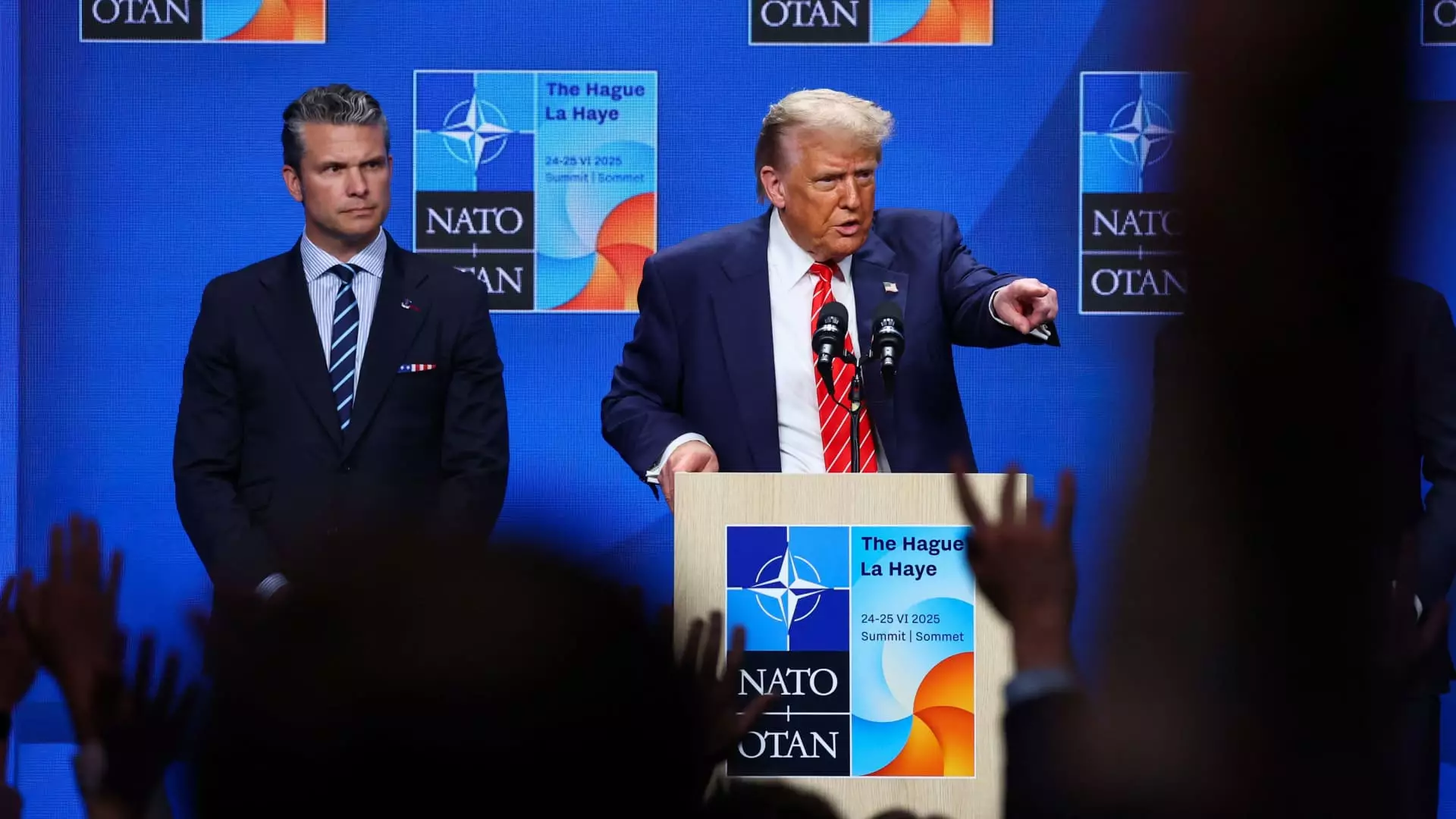In a recent press briefing, President Donald Trump declared that U.S. airstrikes had “obliterated” Iran’s nuclear program, particularly in reference to the contested Fordo site. His words were bold, but like a blaring trumpet in an echo chamber, his claims did little to resonate beyond the sounds of his own administration. The stark reality is juxtaposed against this bravado, as suggested by a preliminary intelligence assessment that points out the limitation of these strikes. Far from the decisive blow promised to the world stage, the strikes only managed to delay Iran’s nuclear ambitions by a few months, rather than extinguishing them entirely. This stark disconnect raises fundamental questions about the credibility of the information emanating from the highest office in the land and the overarching narrative being portrayed.
Defensive Posturing and Intelligence Conflicts
What’s most alarming in this political theater is the defensive response from the White House regarding the intelligence report. Press Secretary Karoline Leavitt’s vehement dismissal of the findings as “flat-out wrong,” and accusations against “anonymous, low-level losers” in the intelligence community, reveal a troubling tendency to deflect criticism rather than engage with it constructively. This isn’t merely a matter of political posturing; it reflects a broader trend where intelligence, once considered a backbone of sound policy-making, is instead shrouded in a veil of partisanship and indignation. When intelligence professionals step forward with assessments that contradict the prevailing narrative, they’re swiftly vilified in a dangerous game that echoes authoritarian tactics of obfuscation.
Crisis of Credibility
In a world where facts increasingly seem negotiable, the credibility of the U.S. administration hangs precariously. Beyond just bombast, Trump’s insistence that the damage inflicted on Iran’s facilities was catastrophic hampers valid discourse on national security. Reality doesn’t conform to wishful thinking or simplistic platitudes. When Defense Secretary Pete Hegseth proclaims, “anyone who says the bombs were not devastating is just trying to undermine the President,” it suggests not only a troubling disdain for dissenting views but signals an administration unwilling to confront complex truths. Acknowledging that these strikes didn’t yield the monumental success advertised is not a sign of weakness; rather, it is a necessary part of any meaningful dialogue about security and foreign policy.
The Office vs. the Facts
What makes this situation even more complex is the intertwining of genuine national security concerns with political theater. While the Pentagon has initiated a “leak investigation,” signaling an urgent desire to contain dissenting narratives, this casts shadows over real discussions that are necessary for understanding the efficacy of military strategies abroad. The fact is that a preliminary assessment labeled with “low confidence” should prompt thoughtful engagement rather than immediate contempt. When classified briefings are abruptly postponed, outside scrutiny begins to feel suspicious and dishearteningly convenient. In a democracy, transparency and accountability are not merely ideals but necessities.
The Role of Media in Shaping Perceptions
The media landscape further complicates these narratives. News outlets echo statements from officials yet may fail to dissect the implications, thereby contributing to a cycle of misinformation that is as dangerous as it is pervasive. Reports stating that the Israeli Atomic Energy Commission claims the strikes have “rendered the enrichment facility inoperable” create a simplistic dichotomy that overshadows nuanced discussions. Such characterizations can then easily morph into political weapons that undermine those who dare question the established narrative. This reductionist framing ultimately does a disservice to the American public, who are left grappling with an incomplete understanding of the potential ramifications of military actions.
In this murky political reality, it becomes crucial for citizens and legislators alike to demand a dialogue grounded in transparency and honesty. The stakes are too high for blind allegiance to simplifying narratives or bravado from the political elite. In an era where national security is often pitched against partisan interests, the need for clear-eyed assessments of what is truly at stake in Iran’s nuclear ambitions has never been more critical.

